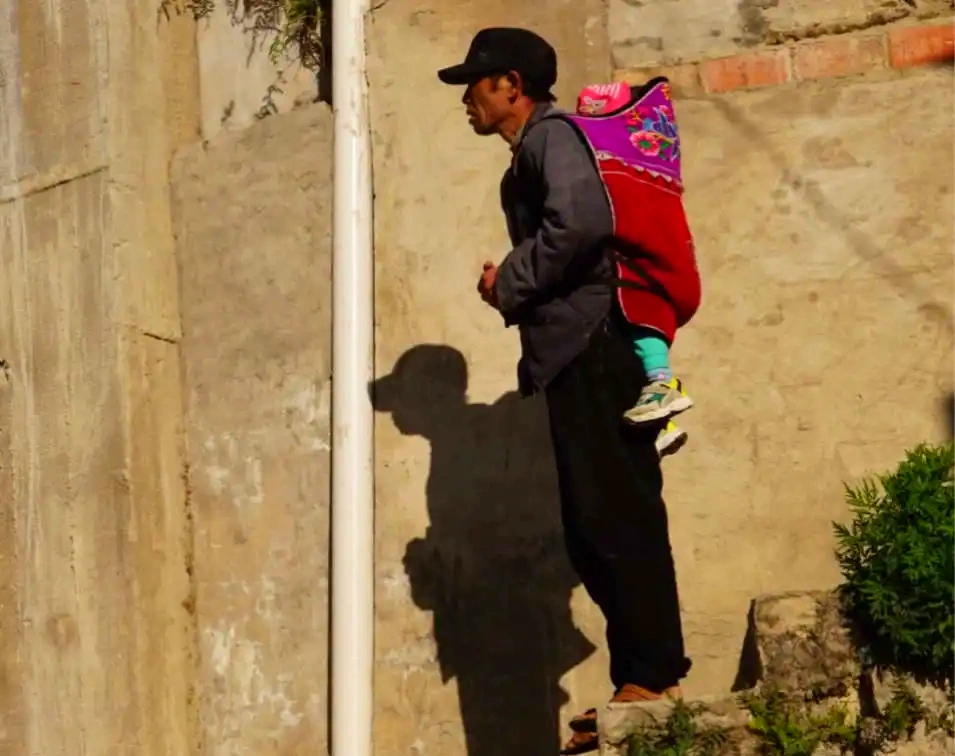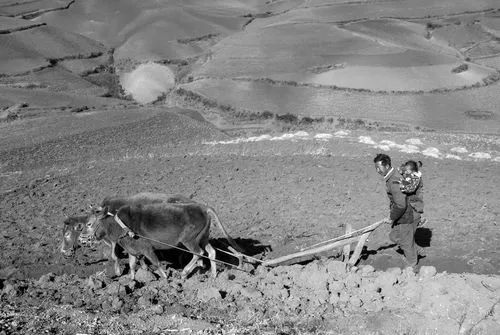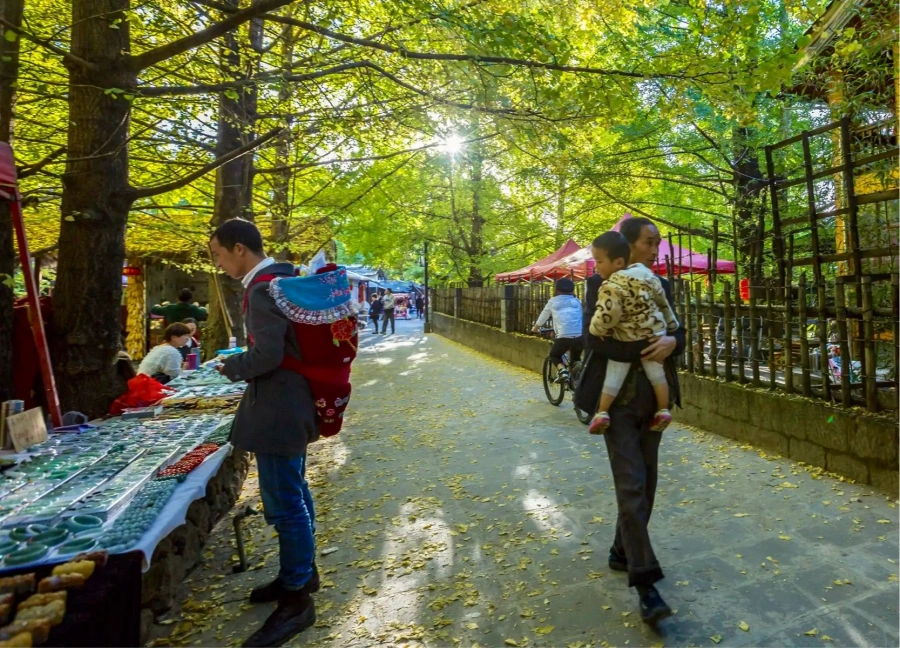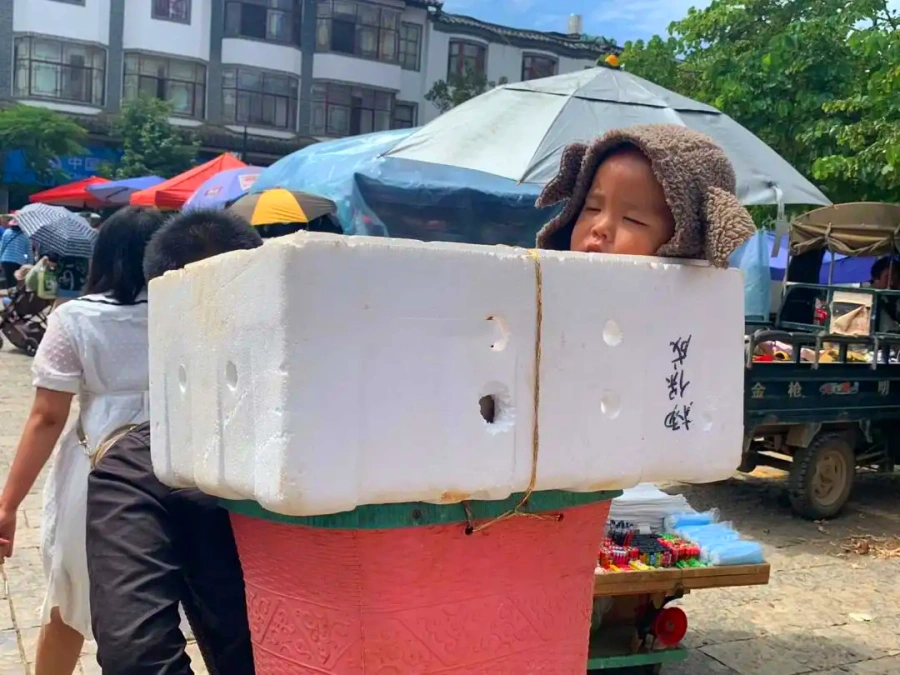 alt="Market Days in Menglian and Townships, Puer"
/>
alt="Market Days in Menglian and Townships, Puer"
/>
Yunnan 18 Oddities: Children are raised by men
One of the unique cultural traits of Yunnan, often included in the list of the “Eighteen Oddities of Yunnan,” is that “children are raised by men” (娃娃出门男人带). This practice, viewed as a role reversal from the perspective of the Han Chinese majority, actually reflects a deeper cultural understanding of gender equality and the practical necessities of life in Yunnan.
Practical Reasons and Cultural Context
In the mountainous terrain of Yunnan, where the landscape can be steep and treacherous, it is considered safer and more reliable for men to carry children. Yunnan men, though generally not as large as those from northern China, are known for their agility and strength, making them well-suited for navigating difficult paths while ensuring the safety of their children.
Additionally, Yunnan’s women have a long-standing reputation for being hardworking and independent. Many women prefer not to stay at home as full-time housewives but engage in various labor-intensive activities. This division of labor allows men to take on the role of child-rearing, especially in public settings.
Historical and Ethnographic Insights
Yunnan is home to many ethnic minorities, each with its own traditions and customs that might seem unusual to outsiders. The practice of men taking care of children is not just a quirk but a reflection of the region’s gender dynamics and social structure.
For instance, in the Dai ethnic group, the custom of “women marrying men” (女娶男嫁) implies a system where women manage external affairs while men handle domestic responsibilities, including child-rearing. This matrilocal practice naturally leads to men taking on a more prominent role in raising children.
The concept of men raising children is also reinforced by the independence and labor orientation of Yunnan women. This cultural norm emphasizes mutual respect and shared responsibilities between genders.
Traditional Marital Customs
Yunnan’s ethnic minorities often have vibrant and diverse matrimonial traditions. For example:
- The Miao have the “Youfang” custom, where young men and women sing songs to express their feelings and choose partners based on mutual attraction.
- The Yao celebrate “Singing of Romantic Songs” to find potential mates.
- The Lahu, Hani, and Bai engage in singing contests to select spouses.
These customs highlight the freedom and autonomy in romantic and marital choices, contributing to the overall gender dynamics where men are more involved in child-rearing.
Unique Marriages and Family Structures
Ethnic minorities in Yunnan often practice flexible family structures that challenge traditional Han Chinese norms. For example:
- The Hani have a marriage system called “Three Years Come, Three Years Go,” where the living arrangements and surnames of children can be negotiated based on family needs.
- In some cases, men may join the wife’s family and adopt her surname if she lacks brothers, and vice versa.
Such practices illustrate a pragmatic approach to family life, emphasizing cooperation and adaptability over rigid gender roles.
Respect for Elders and Flexible Family Units
In Yunnan, respecting elders and maintaining flexible family units are fundamental values. Unlike the Han Chinese proverb “married daughters are like spilled water,” ethnic minorities in Yunnan often have arrangements where family roles are more fluid, ensuring that both men and women can contribute to child-rearing and household responsibilities.
Overall, the custom of men raising children in Yunnan is deeply rooted in the region’s geography, cultural values, and social practices, reflecting a unique approach to gender equality and family life.

 7 Days GolfingTour
7 Days GolfingTour
 8 Days Group Tour
8 Days Group Tour
 8 Days Yunnan Tour
8 Days Yunnan Tour
 7 Days Shangri La Hiking
7 Days Shangri La Hiking
 11 Days Yunnan Tour
11 Days Yunnan Tour
 6 Days Yuanyang Terraces
6 Days Yuanyang Terraces
 11 Days Yunnan Tour
11 Days Yunnan Tour
 8 Days South Yunnan
8 Days South Yunnan
 7 Days Tea Tour
7 Days Tea Tour
 8 Days Muslim Tour
8 Days Muslim Tour
 12 Days Self-Driving
12 Days Self-Driving
 4 Days Haba Climbing
4 Days Haba Climbing
 Tiger Leaping Gorge
Tiger Leaping Gorge
 Stone Forest
Stone Forest
 Yunnan-Tibet
Yunnan-Tibet
 Hani Rice Terraces
Hani Rice Terraces
 Kunming
Kunming
 Lijiang
Lijiang
 Shangri-la
Shangri-la
 Dali
Dali
 XishuangBanna
XishuangBanna
 Honghe
Honghe
 Kunming
Kunming
 Lijiang
Lijiang
 Shangri-la
Shangri-la
 Yuanyang Rice Terraces
Yuanyang Rice Terraces
 Nujiang
Nujiang
 XishuangBanna
XishuangBanna
 Spring City Golf
Spring City Golf
 Snow Mountain Golf
Snow Mountain Golf
 Stone Mountain Golf
Stone Mountain Golf











 What Our Customers Say?
What Our Customers Say?
